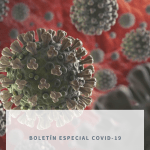Tobacco kills more than eight million people worldwide every year. Tobacco smoking is a known risk factor for many respiratory infections and increases the severity of these diseases.
After reviewing several studies, a group of public health experts convened by WHO on 29 April 2020 established that smokers are more likely to develop severe symptoms if they have COVID-19, compared to non-smokers.
COVID-19 is an infectious disease that primarily attacks the lungs. Smoking impairs lung function, making it difficult for the body to fight this and other diseases. Tobacco use is also a major risk factor for non-communicable diseases such as cardiovascular disease, cancer, some respiratory diseases, and diabetes, and people with these diseases are at greater risk of developing serious symptoms if they are affected by COVID-19. The research data available to date suggest that smokers are at increased risk of developing serious symptoms and dying from COVID-19.
Recent studies, including those examining the relationship between tobacco use, nicotine use and COVID-19, are constantly being evaluated by WHO. WHO urges researchers, scientists and the media to be cautious and to avoid spreading the unproven idea that tobacco or nicotine could reduce the risk of developing COVID-19. Currently, there is not enough information to confirm any link between tobacco or nicotine and the prevention or treatment of this disease.
High blood pressure and heart rate are reduced within 20 minutes of quitting smoking. At 12 hours, the level of carbon monoxide in the bloodstream returns to normal. At 2-12 weeks, circulation and lung function improve. At 1-9 months, coughing and shortness of breath are reduced.







Leave a Reply